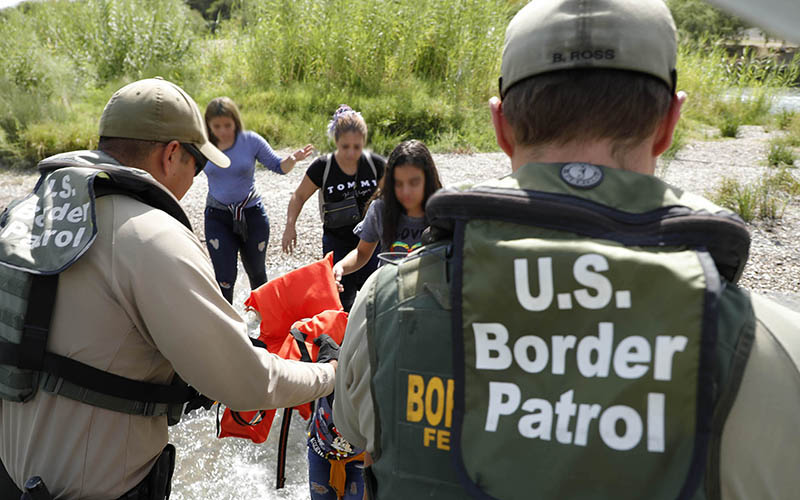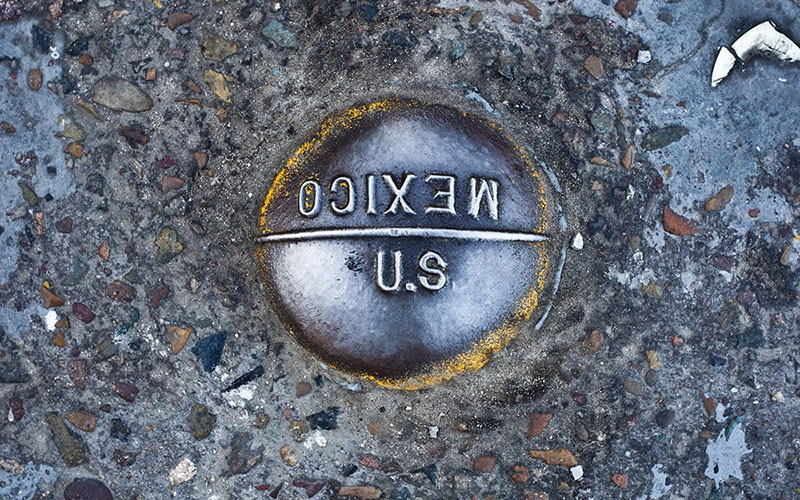
Border Patrol agents intercept immigrants near Eagle Pass, Texas, in August. Under the so-called “remain in Mexico” policy, asylum-seekers can be sent back to Mexico to wait while their claims are heard, but critics say that exposes migrants to abuse by cartels. (Photo by Jaime Rodriguez Sr./U.S. Customs and Border Protection)
WASHINGTON – A new report claims there have been 636 violent attacks on asylum seekers returned to Mexico under a Trump administration policy, with close to half of those incidents coming in just the last two months.
The report by Human Rights First looked at what happens to immigrants subject to the U.S. government’s Migrant Protection Protocols, which force asylum seekers to return to Mexico while they await the outcome of their claims.
Once back in Mexico, the report said, migrants have been subjected to rape, assault, robbery, torture and especially kidnapping, which accounted for the vast majority of crimes.
“Migrants are targeted if it seems like they have connections in the United States who would be able to pay off a ransom,” said Kennji Kizuka, a researcher with Human Rights First.
The Migrant Protection Protocols, also known as the “remain in Mexico” program, have been operating at ports of entry in Texas and California, but not in Arizona.
That changed last month when the Department of Homeland Security announced that asylum seekers apprehended in the Tucson sector would be bused to El Paso, Texas, and sent to Ciudad Juarez, Chihuahua.
That has advocates fearing for the safety of migrants who they said they should be able to assist in Arizona.
“We’re sending them to cruelty and danger when we have the capacity, the resources and the desire to receive them here,” said Katie Sharar, communications director for Nogales-based Kino Border Initiative.
“We’re busing them over 300 miles to a really, really dangerous and really overstretched Mexican city,” Sharar said. “The shelters are vastly over capacity. Lawyers often don’t want to go there because it’s so dangerous.”
Arizona officials with U.S. Customs and Border Protection chose not to comment.
The study said the number of incidents it found is likely “only the tip of the iceberg,” since crimes often go unreported by migrants returned to Mexico.
DHS reported that more than 55,000 asylum seekers were sent back to Mexico from January, when the policy took effect, through September. An investigation by Reuters said that number included at least 16,000 minors – and around 500 infants – who were swept up with their families.
The report said children were the targets of 138 cases of kidnapping or attempted kidnapping.
An October report by Human Rights First put the number of attacks on migrants at 340. That report also noted that Tamaulipas, one of the Mexican states that take in asylum seekers, is subject to a “do not travel” advisory by the U.S. State Department – a warning it applies to countries such as Venezuela, Somalia and North Korea.
Kizuka said more fortunate migrants can pool their money to rent hotel rooms or beds in local houses, but many others stay in tents or shelters – where they’re still put at risk.
“People have been kidnapped, robbed, assaulted inside the migrant shelters,” he said.
Arizona had been considered “one of the last places” untouched by the new asylum policies, Kizuka said, but “that’s over now.”
“Asylum is for the most part no longer available for people who are coming to the southern border,” Kizuka said.
One expert said the threats presented by the remain in Mexico policy are affecting people with legitimate asylum claims and not just those trying to game the system.
“There is a population with legitimate asylum claims who are now being deterred from having those claims fully heard,” said Jessica Bolter, associate policy analyst at the Migration Policy Institute.
To Sharar, the Mexican border cities do not provide the same “community support” that Phoenix or Tucson can offer migrants. If given the chance, she said Arizona would deliver.
“There’s just so many Arizonans who stand by ready and willing to receive asylum seekers,” Sharar said. “That hasn’t gone away and it won’t go away.”
